Text
#codependency#codependant#codependent relationships#narcissist#covert narcissism#surviving narcissism#narcissism#parenting#dysfuntional family#toxic family#toxic relationship
8 notes
·
View notes
Text
0 notes
Text
Did I Grow Up In A Cult?
While writing what may or not become a book, I began researching narcissism again. I believe my grandmother, whom I lived with for 18 years, is a narcissist, as well as possibly my mother. I’m not a psychologist or expert, but in trying to understand my childhood, the things I have read about narcissistic personality disorder (NPD) have really clicked for me.
The traits of NPD, as defined by the National Institute of Health:
Per the DSM, NPD includes:
A pervasive pattern of grandiosity (fantasy or behavior), need for admiration, and with lack of empathy, beginning by early adulthood, as indicated by at least five of the following:
Has a grandiose sense of self-importance (e.g., exaggerates achievements, expects to be recognized as superior without actually completing the achievements)
Is preoccupied with fantasies of success, power, brilliance, beauty, or perfect love.
Believes that they are “special” and can only be understood by or should only associate with other special people (or institutions).
Requires excessive admiration.
Has a sense of entitlement, such as an unreasonable expectation of favorable treatment or compliance with his or her expectations).
Is exploitative and takes advantage of others to achieve their own ends.
Lacks empathy and is unwilling to identify with the needs of others.
Is often envious of others or believes that others are envious of them.
Shows arrogant, haughty behaviors and attitudes
Source: https://www.ncbi.nlm.nih.gov/books/NBK556001/
I wasn’t able to see it until I was an adult, but I’m pretty sure my grandmother, and possibly my mother, are narcissists because they have many of the traits listed above. I have listed just a few examples of how they might meet the qualifications of NPD.
My grandmother didn’t help me with my schoolwork but when I was getting good grades, she used it as “bragging rights” to show how well she was doing in raising me, especially when she thought I was going to get a doctorate degree. If I did well, it was because of her. When I struggled, it was because I was lazy.
She also needs constant admiration and attention. Even just going out in public, like to a store or restaurant, if employees didn’t give her their full attention, she would become resentful. If you’ve worked in any customer service job, you know you can’t spend a full hour just with one customer because they feel entitled to your undivided attention.
Her fantasy was being admired for being a living saint. She took in stray dogs, she fed birds, she fed stray cats every day, and she took in the child that no one wanted. Everyone she came in contact with heard about some or all of these.
My grandmother lacks remorse and empathy. Not once did she ever apologize for anything she did, including her lies and abuse. The closest I ever got were “I did the best I could” and something like “I’m sorry you feel that way”. Those are not the words of someone taking accountability for their actions. She is envious, especially of people who have material possessions, while simultaneously believing that if you have any wealth, you are going to hell. She was envious of a coworker’s Jaguar. She was jealous that the neighbor’s daughter visited the hair salon often. When we bought a house, even though it wasn’t new or fancy, she refused to see it. When I told her of our planned pregnancy, her response was “oh no!” and the final discard began. I really think she knew she would be on the losing end if my attention was spread between her and my child.
I didn’t live with my mother so I don’t know her as well as I do my grandmother. My mother had fantasies that she was the best, smartest, most hard-working person at her job. She also exploited people, seesawing between me and husbands or boyfriends for “supply”. She also needed constant attention and admiration. I didn’t see it until the end, but her sense of entitlement about what she deserved, as she put it, shows that when she didn’t get her way, she had a cruel side to her personality. She never apologized, only saying in an email that she was “sorry that things bothered me”. My mother had no empathy for how she treated me as a child, how her mother treated me, or what I was experiencing as a new mother. Instead, her emailed demands added to my stress levels. While I was pregnant, she baited me, knowing I had wanted a relationship with her for 26 years and that I wanted my child to have a relationship with their grandmother. But she didn’t want the work of being involved, refusing to visit us even once. She wanted cute pictures to show her friends at work and to post on her facebook.
My mother (and father) abandoned me when I was 3 months old, or so my family told me. They all told so many lies that I don’t know what to believe. My mother was anti-abortion, but had at least two abortions that I knew about. I believe when she became pregnant with me, she was future-faking, thinking after her divorce from her first husband, she could start a picture-perfect family with this older man. They moved into a rental house, getting distance from her parents, and with this baby she was going to “fix” her broken self. This baby, me, was going to provide her with admiration and was going to need her. She was going to be the perfect parent.
I don’t know what she was like when she was pregnant, but I’m sure she enjoyed the attention. She may have used her pregnancy to hoover my grandparents into her life after the mess she made of dropping out of high school and ruining her first marriage. She may have also used pregnancy to lure the father into marrying her.
When she became a mother, it was never about me. She grew tired of motherhood in a matter of a couple of months. Family and friends often shower new mothers and babies with attention those first few weeks, but quickly the attention fades away. I cried a lot and my mother grew bored and resentful of my impact on her life.
My mother said she would come back for me when she got her life straightened out and continued future-faking. When I was a child and she remarried, at her new house she asked me to choose a paint color for my room. I was thrilled, thinking I was going to get to spend more time with her. After her divorce, when I was 12, she bought a house in our neighborhood and again, told me of her plans for my room.
Once both parents abandoned me and I lived with my grandmother, my mother and grandmother both used me as a pawn. My grandmother used me to guilt-trip my mother about not having a relationship with me. Later on, as an adult, my grandmother used me as a go-between to my mother and my mother used me to communicate with my grandmother. Each was using guilt to manipulate how I felt about the other.
I was “supply” for both of them. For my mother, it was in between boyfriends and husbands. With my grandmother, it was when I was doing anything that she could brag to her friends about. I never understood how my mother’s boyfriends never saw my absence as a red flag. There were a few that I met, early on in the relationship, so it’s possible they didn’t know she was capable of abandoning a baby.
With my grandmother especially, when I was fitting her needs, I was a golden child to her. When I wasn’t doing well in school or giving her something to use to brag to her friends, I became the “lost child” that she didn’t even care to see. As I got older and began questioning the inconsistencies in their stories, I became the scapegoat. They wanted to show the world how perfect and happy our family was, and when I ruined the fantasy, I was punished. For example, in high school I was referred to the guidance counselor for suicidal thoughts. Rather than concern, my grandmother was embarrassed and ashamed that my school called her at work.
When I had my baby, my mother wanted to be involved without any of the effort. She would email to ask for photos to share, but made excuses why she couldn’t visit during those early weeks. I had forgotten until I looked at my emails from that time where my mother and grandmother were going to visit the new baby and then backed out. When I took my baby to visit them, my grandmother told me my mother was sleeping and not to disturb her. At the time my mother questioned why I didn’t come to her house, but said she understood. Then, years later, she expressed anger, complaining that I didn’t visit her while I was in the neighborhood. Even when I explained this again, and told her why I felt the way I did, I was met with hurtful, angry emails from my mother who felt she was entitled and deserved a relationship with us. For years, she sent emails, facebook requests, voicemails and cards on my birthday.
After years of reflection, going no-contact with my mother and grandmother felt like how I imagine it must be to leave a cult or an insular religious group. I never compared my family to cults until I was listening to the “Was I in a Cult” podcast episode “Atypicult: Mental Parental”. I had a bit of a “holy shit!” moment wondering if I might have grown up in a cult-like environment. I probably wouldn’t have cut contact if not for feeling like I needed to protect my children. I would probably still be trying to do everything “right” enough for my grandmother, overextending myself between my children and my mother and grandmother, killing myself in a futile effort to prove that I am worthy. Because I left, I feel like I can finally examine my upbringing.
In both cults and in a family with a narcissist, there is a charismatic and charming leader and everything seems “perfect” from the outside. Most of us have heard of Jim Jones and the “People’s Temple”, which later infamously became known as Jonestown. The People’s Temple attracted members with ideals of racial equality and caring for those in need. A narcissistic family often looks perfect and happy to outsiders while abuse is kept secret. In both the cult and the narc family, there is a veneer of happiness and normalcy where the leaders make sure outsiders believe their version of reality.
With cults and in families with a narcissist, members experience “lovebombing”. When a person first encounters a cult, members are showered with what feels like love, attention, and affection. In narcissistic families, there is a cycle of abuse. In the first stage, there is idealization or lovebombing where a person may receive gifts, attention, or compliments. During lovebombing, these are the “good times” and either they want something or they know there’s an audience. Over time, there will be an “incident” — perhaps you set a boundary, or question the narcissist/leader, or the narc finds new “supply”. The next stage in the cycle is devaluation — insults, rage, silent treatment, or punishment. The final stage is discard or hoover — the leader/narcissist either kicks you out of the group or creates the circumstances to suck you back in, beginning again with lovebombing. You may believe that the person has changed, but most often, it’s beginning the cycle of abuse all over again. Abusers will remind you of these “good times” to hoover you back into the relationship.
In both cults and with a narcissistic family there is breadcrumbing and gaslighting. Gaslighting causes a person to question their judgment and perception of reality. Both a cult leader and narcissist try to make you believe that your thoughts are wrong and therefore you can’t make good judgments or decisions. My interactions with my family often made me question “did that really happen?” For years they told me my mother was pregnant with me when she was 16, but when I did the math I knew she didn’t have me until she was 19. Since I didn’t know at the time what year she was born, I re-did my calculations and figured she must have been born in a different year. When I found a baby book for a baby born two years before I was, my grandmother explained it away saying my mother was on painkillers and that’s why it was filled out incorrectly.
Later on, as an adult, my mother would breadcrumb me with what felt like mini-hoovers. A chain email here, a facebook friend request there. Just small “pay attention to me” interactions online. My mother also had trouble committing to plans, which according to VeryWell, also is a sign of breadcrumbing. https://www.verywellmind.com/what-is-breadcrumbing-5220677 She wanted to meet me for lunch when I was around five months pregnant, but it took me weeks to set that up. Despite her claims of wanting to be an involved grandmother, she had multiple excuses as to why she couldn’t visit me or I couldn’t visit her in those early weeks and months. Breadcrumbing is leading someone on, making them question whether they care about you.
In both a cult and within narcissistic families, there is usually one person running the show, often an authority figure that is not to be questioned. They consider themselves to be like gods who can do no wrong and anyone who disobeys will be punished. If either a cult or family member speaks out, they are often shunned or met with projection. Projection is like a “no, you!” defense where if you accuse them of a wrongdoing, the narcissist turns it back around and blames you for their failures and shortcomings. If a narcissist or cult leader feels the least bit rejected, they often respond with narcissistic rage. This may result in shouting, screaming or ridiculous accusations and projection against you. If you leave the family or cult remaining members will talk about you and side with the abuser to stay in good graces with the group.For those still part of the group, this serves as a warning to others for how they will be punished should they step out of line.
There is control, domination, and indoctrination, even within a family. It’s not a requirement, but both cults and narcissistic families can have religious components. In my family, my grandmother had a Bible verse to back up her opinions. When I lived with her, I had to believe as she believed or she would lecture me on how I was going to hell. Even when I moved out, if I expressed anything other than enthusiastic agreement, I was risking a lecture over the phone about all the ways in which I was a horrible person and a disappointment to her. I knew not to question the things my grandmother did, but sometimes I couldn’t help myself. We were talking on the phone after her birthday when I was 23 or so, she told me the whole family had gotten together to celebrate. Curious, I asked why I hadn’t known about this and wasn’t invited. Her response, I now know, was narcissistic rage. She blew up, yelling and screaming at me about everything she could think of to hurt me at the time, even berating me for going to church with my mother-in-law. Step out of line and you’ll pay the price through criticism and humiliation, sometimes even in public.
Cults and families with a narcissist are secretive and members rarely discuss what goes on behind closed doors. Outside of the family or cult, members are expected to keep up the appearance of normalcy and perfection. Both narcissists and cult leaders often befriend people in power. In the worst cases, abuse is hidden or members are kept isolated from outside influences that might cause them to question the family or cult dynamic. As a child, I went to school but wasn’t allowed to go over to friends’ houses or have them over to our house. Narcissists have “flying monkeys” that report back to the leader and they may even be abusive themselves. Abuse can be physical, emotional, or psychological in nature. Often there is no privacy and interactions with others are monitored. They may even go through your belongings or use blackmail to keep you under their control.
In cults and narcissistic families, children don’t develop boundaries because they grew up trying to meet the leader’s needs. Children have no sense of self or individuality due to enmeshment with their abuser. The message they receive from the leader is “if I’m okay, you’re okay” and “if I’m not happy, you need to find a way to make me happy”. Children and even adult members are taught to ignore their needs and feelings in order not to upset the leader or narcissistic family member. Respect is defined as nothing less than total obedience. Love and acceptance is conditional if you follow their rules and meet their needs and members are always on “high alert”, walking on eggshells trying not to upset the leader. Both a narcissist and cult leader see relationships as a one way street. They demand respect but don’t respect others as individuals. Instead, they use guilt and manipulation, saying “after everything I’ve done for you!” if you step out of line in the least.
Both narcissistic families and cults have “in” and “out” groups to show expectations for behavior. Within a narcissist family, there are three categories that children often fall into, or a single child can cycle through all three. There’s the “golden” child, the scapegoat or “black sheep” and the “lost” or ignored child. The golden child is held up as the standard of perfection and receives the most adoration within a family. In a cult, there are members that are part of the inner circle or are held as examples of good behavior and are rewarded with praise. This dynamic pits people against one another through triangulation, playing people off one another. The scapegoat or those members not in favor will work even harder to earn the love and validation they crave. In my family, my cousin was usually the golden child and I was the scapegoat. I always heard about how great my cousin was and why wasn’t I more like him. When I did well in school and my grandmother could use my report card for bragging rights, for a short time I was a golden child, but my ability to stay in favor was transient. I had another cousin who probably qualifies as a “lost” child. When my grandmother flat-out told me she didn’t want to see me, or that she should have let me go into foster care, I became a lost child.
Gossip and drama, lies and secrets, and manipulation are the mechanism of communication within both cults and narcissistic families. All of these serve to create mistrust and maintain division and chaos. Unhealthy communication destroys relationships between members so that everyone comes to rely upon the leader figure for communication and directives. In my family, there was always gossip and secrets, including the real identity of my father and my grandmother’s secret will.
Most of the stories I’ve heard on podcasts about various cults come from adults who were either born into a cult or brought into the cult as children by their parents. There are some adults willing to tell their stories about how they came to join cults, but they often aren’t as forthcoming because they feel a sense of shame. For those that became part of a cult as adults or older children, they knew that life could be different. However, when you are born into a family with a narcissist, all you know is dysfunction.
What can you do if you think you are in a narcissistic family dynamic? Many who have dealt with narcissists suggest the “grey rock method” of making yourself as boring as possible and denying the narcissist a reaction from you. It’s not silent treatment or ignoring them, but rather only giving short, straightforward and unemotional responses. This approach is meant to cause the narcissist to lose interest, but may have some risks. The narcissist may try to lovebomb and hoover you. When the abuser doesn’t get what they want from an interaction with you, they may escalate, becoming more aggressive or manipulative. Grey rocking is draining on the person to the victim. It takes immense self-control to hide your emotions and the victim may feel even more isolated.
I wouldn’t say I tried gray rocking as a child, but as a teenager I realized I was stuck with my grandmother. When I was 14 or 15, I knew I needed to try to keep my head down or “gray rock” until I could move out. But because I was a teenager, I wasn’t always successful in not drawing attention to myself. It wasn’t until I was in my mid-twenties that I learned about toxic family dynamics and began to understand more about my own upbringing. I began detaching myself as much as I could, often listening and observing without giving an emotional response. My grandmother often tried to “guilt trip” and bait me with highly emotion-ridden topics. I still didn’t know the term “gray rock” back then, but I tried to resist her tactics.
While I was pregnant at 26, after my grandmother’s reaction to my pregnancy, I began cutting contact, going “low contact” with my family. When I was 27, I went no-contact with my mother and grandmother in an act of self-preservation. However, this meant cutting off contact with everyone in my family, including my cousins, aunts, and uncles. I knew if I cut off my grandmother, any contact with extended family would make its way back to her or my mother, which would cause them to reach out, beginning the cycle anew. My grandmother has never reached out, which makes me believe having children caused her to discard me completely. My mother reached out many times over the years, sending birthday cards or calling me on my birthday, sending me chain emails, or requesting access to my facebook page. I never respond to these attempts for attention because I don’t think she will ever be able to be a caring mother and grandmother. It took me so many years to recognise her attempts to hoover me back in to be supply for her when she is bored. When I see people asking how to deal with a narcissist family member, or if they should break no-contact for the holidays, I advise them not to because they could get drawn back into the narcissist’s cycle of abuse. Honestly, I think it’s the only way — gray rock until you can go no contact and I imagine this applies to both cults and narcissistic families.
0 notes
Text
If anyone has any experience with anything or knows anything please let me know 🙏
7K notes
·
View notes
Text

whose gonna tell them you don’t need to eat soy or wheat to be vegan
242 notes
·
View notes
Text


New York Times workers are striking tomorrow for the first time in 44 years.
Tomorrow, December 8th 2022, stay off of the NYT website, don't listen to any of their podcasts, don't play Wordle, nothing
84K notes
·
View notes
Text
holy shit i just learned about the “proxy strike” tactic in france in which radicals blockade or occupy a workplace, allowing workers to strike without losing their wages. that’s brilliant, wow
133K notes
·
View notes
Text
Only good thing about Christmas time is I get to hear carol of the bells all the time but the bad part is I have to act normal like that song doesn’t go hard as fuck
64K notes
·
View notes
Text
MENTAL HEALTH TIPS (tw // suicide mention)
hii, yesterday I kind of had a crisis, so I decided to point out some things I should do in order to take care of myself better (hope this post might help another people with a fragile mental state too). a little warning that this post have some vent.
1. be kind to youself
the crisis I had yesterday ocurred because my mother told me I am always putting too much pressure on myself and that it was ok if I didn't made it up to the college I want (I am in the last year on high school). I got extremely mad at her simply because she treated the fact that I might not make it to this college as a possibility. I promised to myself that if I was unable to go to this college I would kill myself, because if I can't do it is a sign that I am an ultimately worthless, without any piece of effort or intelligence, human being. and... it just feels like I am too harsh with myself (?) idk, I hate when people say that I must be kind with myself because, as someone with autism and ADHD, I make too much effort, because it just feels like they're saying I am able to make less than neurotypicals. I... don't want to respect my limits, I want to break them and be more. but... this is a toxic train of thought, alright? assume that my value is measured by things such like grades or a college, idk... I don't feel I should be kind to myself, but I should. you should be kind to yourself and respect your limits, even if you think you don't deserve it, because, if you are not kind to yourself, you get stuck into suffering, you will not be able to expand your limits, or to help others, or to do anything that you value. Your mind might say that you are useless, that you are worthless or the worst mistake that God has ever made, but... this is just not true. there are people you love, people you value, and, because you are able to love others and to be kind to them, you should be able to love yourself and be kind to yourself too. respect your limits, pretty please <3
2. disconnect from social media
because of this elon musk drama, I uninstalled twitter, this was the only social media that I was really addict, I usually just access tumblr, instagram and tiktok once a day for a few minutes and reddit two or three times (I really like reddit tbh), and... this is great! it might look like boomer talk, but excessive use of social media makes you focus less on what's actually happening around you, and, aside from that, some social media are a really toxic enviroment and the huge amounts of information can make you stressed. try to disconnect for a little and focus on another activities, such like play a interesting videogame or meditate!!
3. take much needed breaks
don't forget to take some good breaks on your work or studies to eat something, have a walk or just watch an anime episode. make effort to whatever you're doing is important, but you will be able to do it much better if you are with a relaxed state of mind.
4. talk to a friend
make sure to don't feel alone. whenever you're feeling lonely, text a friend and talk to them, I am pretty sure they will love to have a good conversation with you!! they are your friends, they love you and care for you <3
5. take care of physical health
"mens sana in corpore sano". if you do not take care of your physical health your chances to develop a physical issue that might give you problems in the future are bigger, otherwise, you are unable to feel really good if your body isn't okay. eat healthy (make sure to eat, do not skip meals), practice exercises (even if just for 30min a day), take your meds and do your exams!!
6. ask for help
I know you might feel like you are disturbing people who care about you, but remember, these people want to see you okay, and you will think "i'll just pretend I'm okay so I don't hurt them" but one hour or another the symptons of your mental pain will show up, so it isn't better to ask for help now, before you blow up, when still isn't too late? you are important, your suffering matters, please, ask for help!!
163 notes
·
View notes
Text
Woke up wondering where is the child my mother (?) had two years before me? Life’s mysteries, I guess.
1 note
·
View note
Photo

the time has come for Sanrio to bring back Big Challenges
111K notes
·
View notes
Text
Hilariously, I'm currently suspended from twitter for... wait for it... following too many people.
Can't wait to get my news from tiktok in the coming days, some dancing kid tells me "Elon Musk has unalived Twitter"
1K notes
·
View notes




